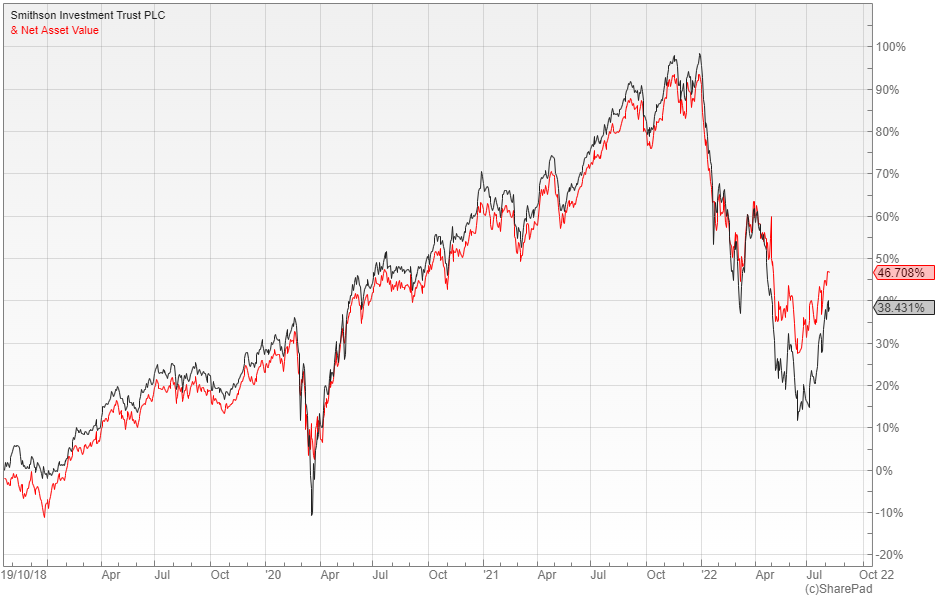Tough six months for Smithson but broker retains buy recommendation

It was a terrible first half of the year for Smithson (LON: SSON) with the growth-oriented investment trust making an NAV total return of -31.7%, which was well below the -13.7% recorded by its MSCI World Small and Mid-Cap index. Manager Simon Barnard describes it as “by far the worst period of performance since inception” with higher interest rates being the main factor undermining the valuations.
The trust has a clear investment philosophy to buy good companies, don’t overpay and then do nothing, which is the same approach as its large-cap, open-ended stablemate Fundsmith. It is a high conviction strategy that involves identifying top quality, well-established businesses that are capable of delivering sustainable growth and that can compound in value over the long-term.
Despite the period of significant underperformance, Barnard remains confident in the fundamentals of the portfolio and is optimistic that the low cyclicality, high margins and strong competitive positions mean that it is well-placed to cope in a recessionary environment. He believes that the pressure on the portfolio will be relieved once interest rate expectations begin to stabilise and the market can get a sense of the size and shape of the interest rate cycle required to tame inflation.
The underlying portfolio
The manager looks for companies that can deliver sustainable high returns on capital employed and generate substantial cash flow, with some of the excess cash reinvested into the business. These sorts of stocks typically rely on intangible assets such as brand names, patents, customer relationships, distribution networks, installed bases of equipment or software that provide a captive market for services, spares and upgrades or dominant market shares.
Another feature is the very low level of debt, with interest cover materially higher than that of the benchmark. The result is a high conviction portfolio that currently consists of 32 positions with an average market cap of £6.4bn and a median inception date of 1973.
Smithson’s highest sector weightings include technology, consumer discretionary, healthcare and industrial, which were the four weakest performing areas in the index this year. In terms of the individual names, the largest positions at the end of June were: Recordati Spa, an Italian pharmaceutical company; Moncler, another Italian business that makes luxury clothing; as well as Swiss software analytics company Temenos; plus US travel tech provider Sabre.
Outlook
Barnard is less concerned about the impact of inflation on the portfolio than he is higher interest rates, as the quality focus means that the holdings typically have high gross margins, low capital requirements and strong competitive positions with pricing power. It is also worth noting that the stocks are not particularly cyclical and can demonstrate strong balance sheets, so they should fare reasonably well in a recession, particularly if it is mild, as currently forecast.
Smithson was the largest investment trust IPO and until the first quarter of this year had continuously issued new shares to satisfy strong demand, but since then it has come under pressure and is currently trading on a discount of five percent to NAV. The trust began a share buyback program in April to limit the downside and has now bought around one percent of the shares in issue.
Investec believe that the pressure on ratings will be relieved once interest rate expectations stabilise, which is likely to coincide with peak inflation. They say that the fund’s philosophy has proved successful through many economic cycles and they remain confident that it will be able to deliver superior long-term returns, hence their buy rating.

Comments (0)